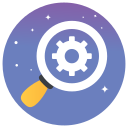scikit-learn is a versatile and user-friendly library for machine learning in Python, renowned for its comprehensive documentation and approachable codebase. New contributors are encouraged to participate not just in coding but also in improving tutorials and clarifying existing documentation. The maintainers are attentive to beginners, providing guidance and well-labeled issues suitable for those just getting started. Working on scikit-learn exposes contributors to essential machine learning methods like classification, regression, clustering, and more. This project is ideal for beginners wishing to blend their interests in coding and data, as it offers clear paths to learn about algorithms, code optimization, and software structure.
TensorFlow, developed by Google, is one of the leading open source platforms for machine learning and deep learning research. Its vast community ensures continuous improvement and abundant resources for new contributors. The repository contains extensive beginner guides, marked first-timer issues, and active discussion forums aimed specifically at onboarding newcomers. Contributors can engage in writing tutorials, fixing bugs, or even creating simple neural network models. This exposure is invaluable in understanding modern AI workflows and the collaboration involved in large-scale, high-impact projects. The welcoming atmosphere and well-maintained documentation make TensorFlow a fantastic entry point for those interested in AI technologies.
Pandas is an open source data manipulation and analysis library that has become indispensable in the world of data science with Python. It enjoys widespread use in both industry and academia and thrives on community contributions. For beginners, the Pandas repository offers good-first-issue tags, comprehensive contribution guidelines, and an invitation to help with code, documentation, or test cases. Contributing provides hands-on experience with dataframes, cleaning data, and optimizing performance—critical skills for any data scientist or analyst. The project’s collaborative ethos means every question is welcomed, allowing contributors to learn the intricacies of professional-level data analysis while building their confidence in open source contribution.

